Three Instant Takeaways from the 2025 Canadian Federal Election
What it is, and what it most certainly is not - free from mainstream media bias, narratives, and otherwise regularly scheduled nonsense.
Last night, Canadian Prime Minister Mark Carney, a banker who is about as Canadian as a kangaroo, declared victory as his Liberal Party took 168 electoral districts, compared to just 144 for Conservatives. While not a blowout victory by any means, it marks a major turnaround from the beginning of the year, when Conservatives were expected to take back control after a full decade in the wilderness. Ironically, Conservative leader Pierre Poilievre, who tried to talk tough to Donald Trump before the election, lost his own seat in Carleton.
The Liberals lead the “popular vote” by just 2.1%, or just over 400,000 ballots, as of this writing. Keep in mind, when viewing the map below, that red doesn’t equate to the American variant of political map-shading red, which would symbolize non-leftist victory for Republicans. Carney’s Liberals are shaded in Red, and Conservatives are shown in blue.
There are lots of opinions over last night’s results, but not much objective analysis floating around. Most of the media are gloating about this being bad for Trump, which should tell you to dig deeper into what the global spin of this debacle is. Here are the top three takeaways for you, my valued international audience:
I. American Government Deals with American Issues
The media say this stunning turn of fortunes in Canada, where it once appeared Liberals were dead in the water, is directly owed to President Trump’s overbearing tariffs and continued rhetoric about making Canada the 51st American state. Maybe they are right.
But does it really matter? The American government is supposed to deal with the issues impacting American citizens, and when industry and jobs are harmed because of our trade relationship with other nations, actions are warranted no matter what the impact on other countries turns out to be. China is busy building a massive Navy and constructing makeshift islands in the South China Sea as part of their plan for global domination. Their actions create corresponding political actions in the impacted countries. Do you see the mainstream media jumping on them for the ripple effect they create throughout world politics? The fact is, politics has always been a reactive exercise in which current events from all over the world impact the vote of a given nation.
Many loyal readers of Captain K’s Corner hail from Canada, so none of what I write here is intended to rub salt in any wounds. In fact, I’ll bet Elizabeth Nickson is going to say I’m taking it too easy on the ridiculous political leanings of our northern neighbors; nevertheless, national governments exist to do business on behalf of their own people. Our country should still do what it wants and needs to do regardless of what it does to swing results elsewhere. The media would sing a different tune about these results if Trump’s actions had, in reverse, spawned a massive right-wing populist uprising than a small left-wing one.
II. Don’t Blame Us
I’ve been monitoring the pulse of the Canadian electorate since their potential inclusion in the U.S. political universe became a topic of conversation. The fact is, roughly 82% of Canada’s population lives in urban areas, meaning Ontario and Quebec have oversized spots at the table and more seats to fill than the more sparsely populated, yet geographically large provinces in the interior of the country.
Another unique problem in Canada is that there is little difference between the Liberal Party and the Conservative Party; the latter concerns itself with environmental issues, is socially liberal, and tries to squeeze in there with slightly better fiscal positions than the Liberal Party. Additionally, the three minor parties that also took at least one seat took more seats collectively (31) than separate the two major parties (24). Canada’s electoral system, while seeking to break up pockets of power, is also open to split-ticketing fiascos, collusion, and media manipulation (propping up candidates to achieve a strategic outcome).
III. I Told You So
In December, I published a bluntly titled piece called “Inside the Electoral Hell of Canadian Statehood.” In that piece, I imagined an electoral landscape in which 7 newly admitted Canadian states had a collective value of 63 electoral votes.
You’ll need to read the piece to understand the methodology behind how why I’ve slated electoral vote tallies as I have, and why I also believe that all 7 hypothetical states would uniformly back Democrat presidential candidates as the entire blue mass of New England does:
Why? Because “conservatives” in Canada don’t have to defend gun rights (there are almost none), don’t have to have a stance on foreign invasion through its border with the United States, and seek to govern a secular nation decades to the left of American culture war, all while having almost nothing resembling Canada’s own version of the “Bible Belt.” Conservatives did well in British Columbia, Alberta, Saskatchewan, Manitoba, and even in parts of Ontario, but none of these provinces are anything that should be considered to the right of Minnesota, which is arguably the best comp demographically and in terms of urban makeup outside of New England.
Canadian statehood would doom American political life for decades, if not permanently - I told you so.
Seth Keshel, MBA, is a former Army Captain of Military Intelligence and Afghanistan veteran. His analytical method of election forecasting and analytics is known worldwide, and he has been commended by President Donald J. Trump for his work in the field.



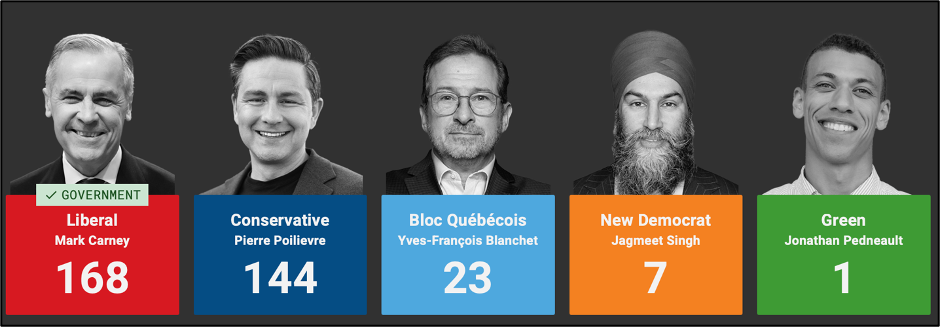
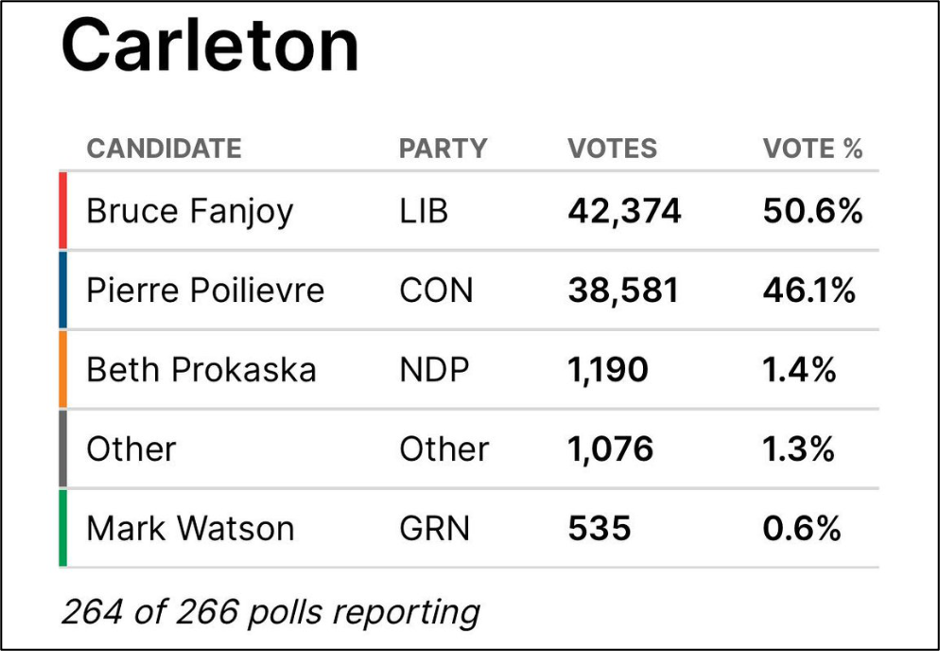
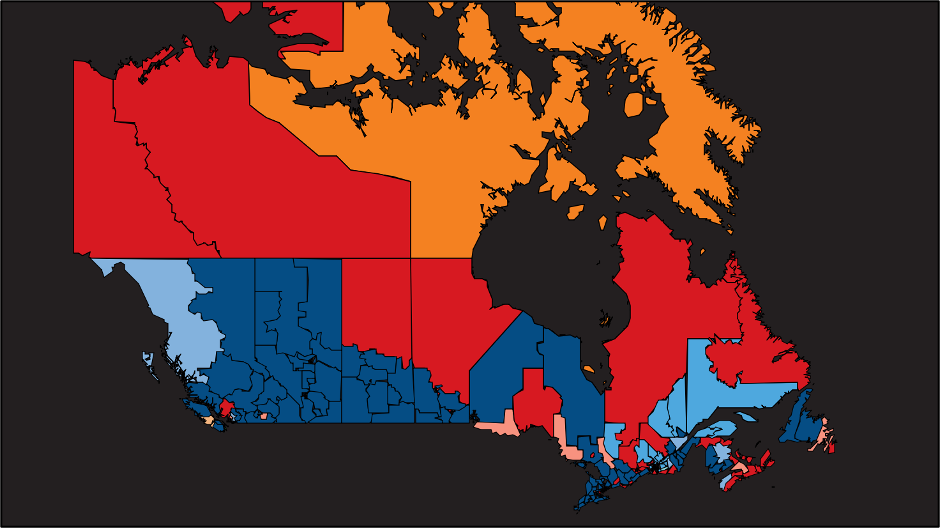
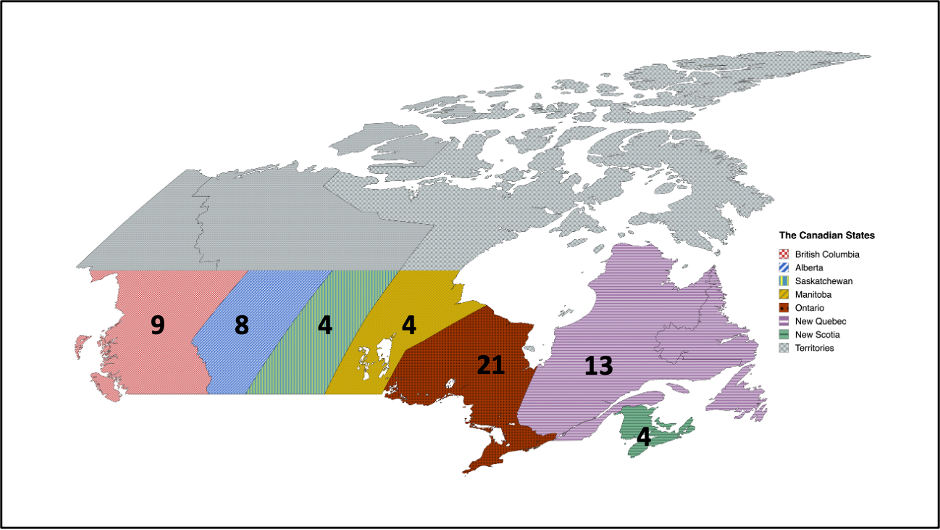
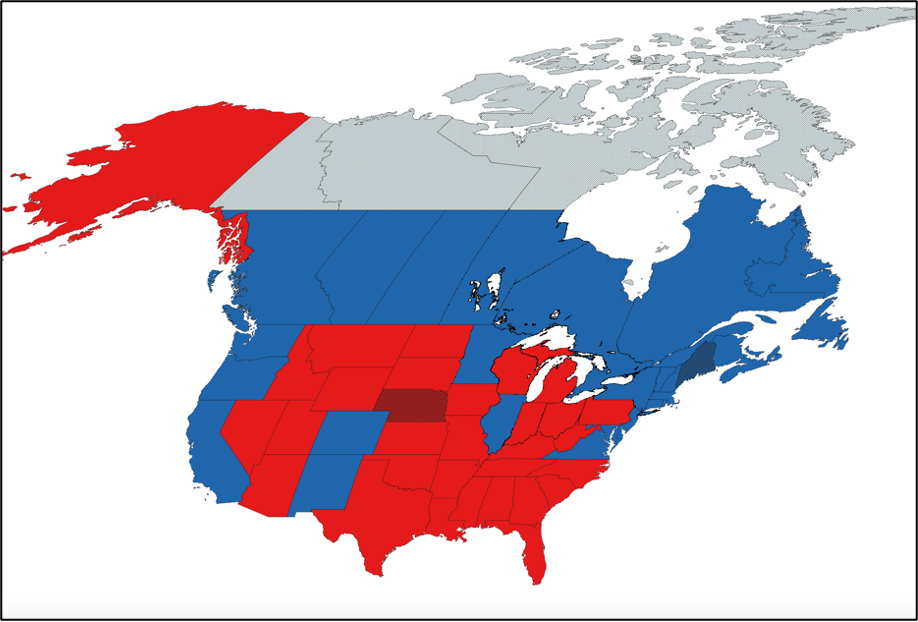
This election is disconcerting for many reasons. I’m no geopolitical expert here, but what concerns me is the continued leftward lurch of Canada over the last many decades, and really what that could eventually mean to our own U.S. national security.
Perhaps I’m connecting too many dots here, but analogously to the Russian invasion of Ukraine largely the result of a pervasive threat of NATO expansion, is it so far-fetched to imagine a scenario where an ever-Marxist Canada cozies up to the China Belt and Road initiative (effectively a CCP military Trojan Horse) that would become unacceptable to the U.S. such that we might be forced into military action?
Again, maybe just me, but I don’t find that scenario so far-fetched at all.
Yes, Canada annexation was a bad idea. I’m much more interested in building a wall at the northern border at this point.